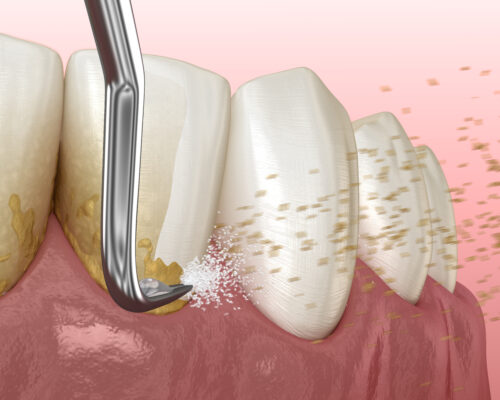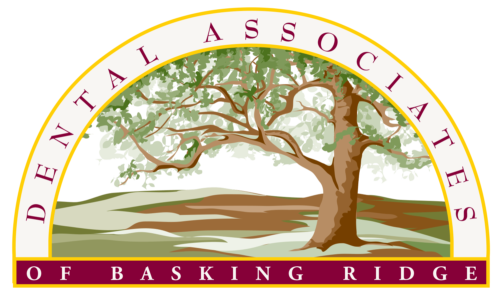
Regular visits to your dentist are essential to maintain good oral health. Plaque build can cause significant damage to your teeth and gums. Although plaque and tartar are often confused, they are not the same thing. Tartar is a hardened form of dental plaque that can lead to serious dental issues. Removing plaque and tartar through professional cleanings can help mitigate the risk of developing severe oral health issues. Everyone has plaque. Therefore, regardless of your oral hygiene, plaque and tartar formation is inevitable. Please don’t hesitate to schedule a visit with our seasoned professional teeth cleaning/dentists located in Basking Ridge & Morristown, NJ, every six months to maintain a healthy smile. Please continue reading to learn the distinct differences between plaque and tartar.
What is Plaque?
Dental plaque is a sticky film that builds up on teeth and under the gum line throughout the day. It is made of bacteria from leftover food particles and saliva in your mouth. This bacteria eats away at your tooth enamel, producing harmful acids. Eating carbohydrates or foods with higher sugar content makes you more likely to form plaque. While it’s normal to produce plaque, it can lead to cavities, tooth decay, and gum disease if you don’t regularly brush your teeth. Ultimately, there is no way to eliminate plaque entirely. However, maintaining good oral hygiene and regularly visiting your dentist for professional teeth cleaning can help protect against the accumulation of dental plaque.
What is Tartar?
Tartar is not the same thing as plaque. If you don’t remove plaque regularly, it will transform into tartar. Therefore, dental tartar is essentially hardened plaque. Unlike plaque, you can’t brush or floss it away. It’s crucial to understand that no home remedies eliminate tartar. If you develop tartar, only a dentist or hygienist is equipped to remove it. While plaque is usually colorless, it can sometimes cause tooth discoloration. Tartar, on the other hand, may appear off-white or yellow. However, it can take on the color of whatever food you consume after a while. For instance, substances that can make tartar look darker include:
- Coffee
- Tea
- Red Wine
- Tobacco
- Smoking
As mentioned above, dental plaque can cause cavities, halitosis, gum disease, and tooth decay. If tartar is left untreated, it can lead to tooth sensitivity, receding gums, periodontitis (advanced gum disease), infections, and tooth loss.
The best way to prevent plaque from hardening into tartar is to practice good daily oral hygiene and visit your dentist every six months for dental exams and cleanings. Professional teeth cleanings are performed to remove plaque that builds up in hard-to-reach areas. Please schedule an appointment with our talented dentists at Dental Associates of Basking Ridge to improve your oral health.






